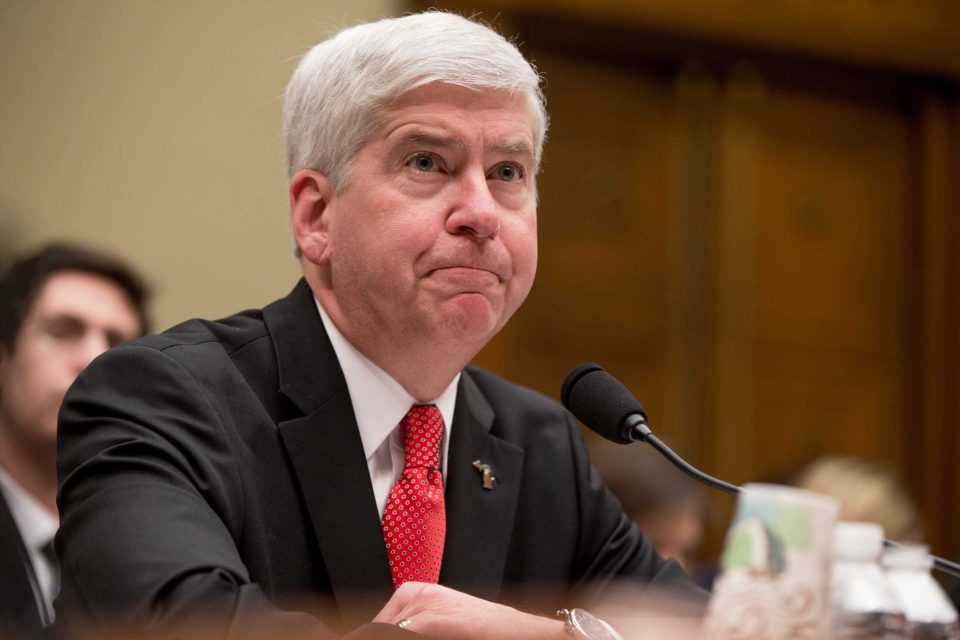FLINT, Mich. (AP) — A look at some of the key events in the development of the Flint water crisis:
APRIL 2014: In an effort to save money, Flint begins drawing its water from the Flint River instead of relying on water from Detroit. The move is considered temporary while the city waits to connect to a new regional water system. Residents immediately complain about the smell, taste and appearance of the water, and raise health concerns, reporting rashes, hair loss and other problems.
OCTOBER 2014: A General Motors engine plant stops using Flint water, saying it rusts parts.
JANUARY 2015: Detroit offers to reconnect Flint to its water system, but Flint leaders insist the water is safe.
MARCH 2015: Flint promises to spend $2.24 million on immediate improvements to its water supply. Later in the month, city officials say water quality has improved and meets all state and federal standards for safety.
SEPT. 24: A group of doctors urges Flint to stop using the Flint River for water after finding high levels of lead in the blood of children. State regulators insist the water is safe.
SEPT. 29: Gov. Rick Snyder pledges to take action in response to the lead levels — the first acknowledgment by the state that lead is a problem.
OCTOBER: Snyder announces that the state will spend $1 million to buy water filters and test water in Flint public schools, and days later calls for Flint to go back to using water from Detroit’s system.
OCT. 15: The Michigan Legislature and Snyder approve nearly $9.4 million in aid to Flint, including $6 million to help switch its drinking water back to Detroit.
NOV. 3: Voters elect newcomer Karen Weaver over the incumbent.
DEC. 29: Snyder accepts the resignation of Department of Environmental Quality Director Dan Wyant and apologizes for what occurred in Flint.
JAN. 5, 2016: Snyder declares a state of emergency in Flint, the same day federal officials confirm that they are investigating. A week later, the Michigan National Guard begins helping distribute bottled water and filters, while Snyder asks the federal government for help.
JAN. 13: Michigan health officials report an increase in Legionnaires’ disease cases — some fatal — over the past two years in the county that includes Flint.
JAN. 14: Snyder asks the Obama administration for major disaster declaration and more federal aid. The White House provides federal aid and an emergency declaration on Jan. 16, but not the disaster declaration.
JAN. 20: Snyder releases more than 270 pages of emails about the Flint water crisis that show debate over who is to blame and offer insight into the state’s response — the first batch of several that are rolled out in the coming months.
JAN. 25: Michigan attorney general Bill Schuette begins an “independent review” into the Flint crisis.
FEBRUARY: Several lawsuits are filed over the lead-tainted water crisis, including some that name Gov. Rick Snyder and public employees.
MID-MARCH: Snyder, the state-appointed emergency manager who oversaw Flint when the water source was switched to the river and other state officials testify in front of Congress.
MARCH 23: A governor-appointed panel concludes that the state of Michigan is “fundamentally accountable” for the crisis because of decisions made by environmental regulators.
APRIL 20: Two state officials and a local official are charged with evidence tampering and other crimes in the Michigan attorney general’s investigation — the first to be levied in a probe expected to expand.
This story has been corrected to show that two state officials and one local official, not three state officials, were charged April 20.

